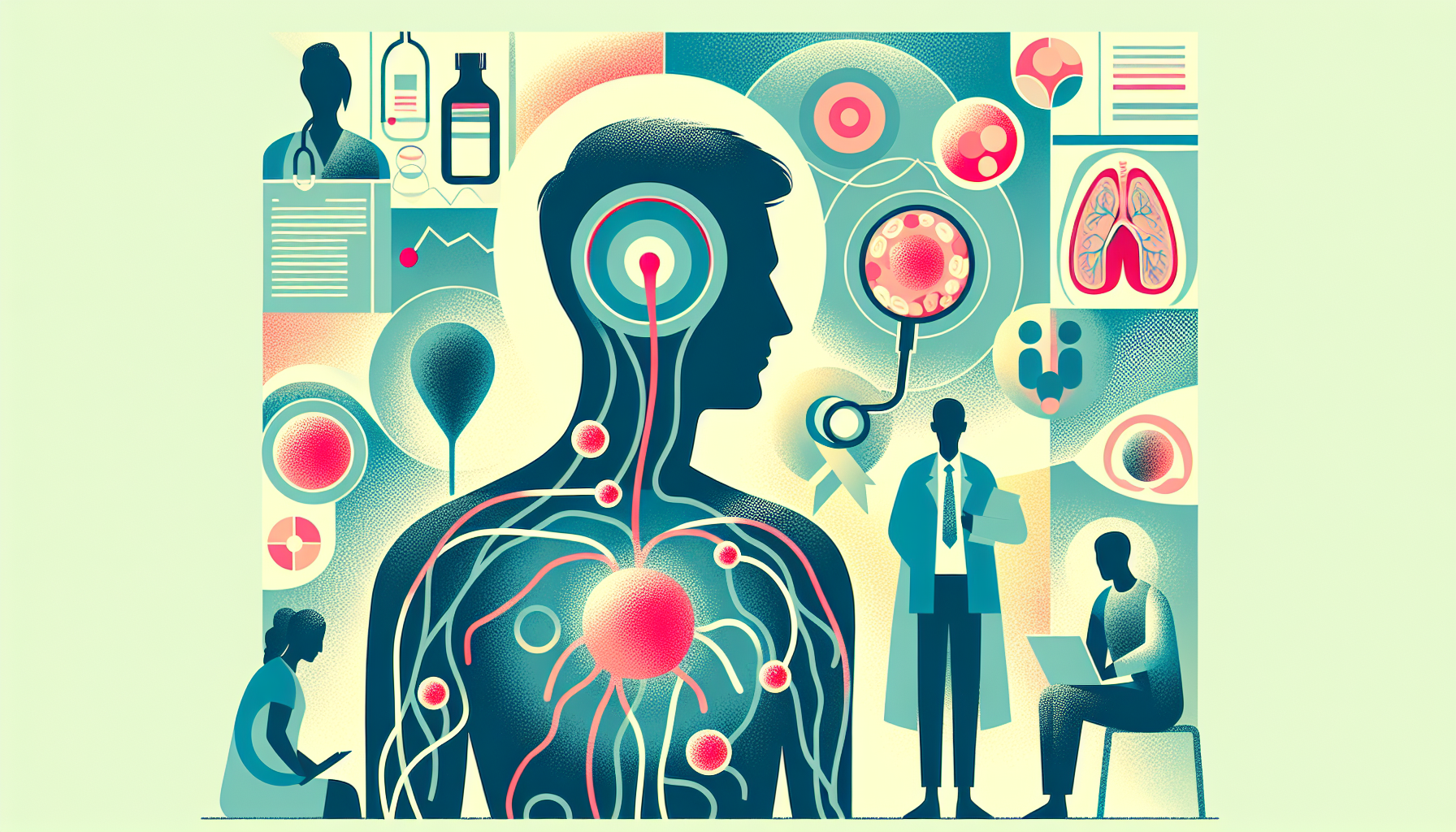Follicular lymphoma is a type of non-Hodgkin's lymphoma, a cancer that affects white blood cells called lymphocytes. These cells play a crucial role in your body's immune system, helping to fight infections. When you have follicular lymphoma, the affected blood cells can travel to various parts of your body, such as your organs, bone marrow, and lymph nodes, potentially forming tumors in these locations.
Symptoms of Follicular Lymphoma
In some cases, people with follicular lymphoma may not experience any symptoms. However, when symptoms do occur, they may include:
Diagnosing Follicular Lymphoma
If your doctor suspects you may have follicular lymphoma, they will perform a physical exam and ask you questions about your medical history and symptoms. If enlarged lymph nodes are detected, your doctor may recommend a biopsy to determine if cancer is present. Additional tests, such as blood tests, bone marrow tests, CT scans, and PET scans, may be conducted to determine the stage of the lymphoma and the extent of its spread in your body.
Treatment Options for Follicular Lymphoma
Treatment for follicular lymphoma depends on various factors, including the stage of the cancer and the presence of symptoms. In some cases, a "watchful waiting" approach may be recommended if you have no symptoms. When treatment is necessary, options may include:
Radiation Therapy
Radiation therapy uses high-energy beams or radioactive material to kill cancer cells. Follicular lymphoma responds well to radiation, and in some early-stage cases, radiation alone may be sufficient to cure the cancer.
Monoclonal Antibodies
Monoclonal antibodies, such as rituximab (Rituxan) and obinutuzumab (Gazyva), are drugs that mimic your body's disease-fighting cells. These medications effectively kill lymphoma cells while minimizing damage to normal body tissues. They are often used in combination with chemotherapy as a first-line treatment for stage II-IV follicular lymphoma.
Chemotherapy
Chemotherapy involves the use of drugs administered intravenously or orally to kill cancer cells throughout the body. Novel agents, such as tazemetostat (Tazverik), lenalidomide, and copanlisib, may be used to target specific pathways in cancer cells.
Stem Cell Transplant
A stem cell transplant may be considered when follicular lymphoma returns after initial treatment. This procedure involves using high-dose chemotherapy followed by an infusion of healthy stem cells from either the patient or a donor to help rebuild the body's immune system.
Although follicular lymphoma is usually not curable, many people can live long and fulfilling lives with the disease. With advancements in treatment options, patients are experiencing longer periods of remission and improved quality of life. It is essential to work closely with your healthcare team to determine the best course of treatment for your specific situation and to address any concerns or questions you may have throughout your journey.
For more information and support, visit the Lymphoma Research Foundation, the American Cancer Society, or the Leukemia & Lymphoma Society.



